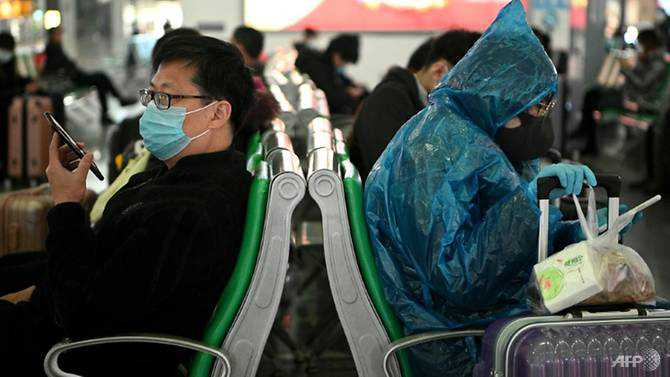New normal on coronavirus-hit China: High-tech monitoring and fever checks
04 March, 2020

Constant temperature checks, a "very little mask, no support" ethos, and high-tech people young and old-tracking: Welcome to the brand new normal in China, where reminders of the country's nationwide mobilisation against COVID-19 lurk around every corner.
China appears to be coming to grips with the virus, which emerged late last year and features infected a lot more than 80,000 people and killed practically 3,000 found in the country, but has slowed markedly in recent weeks.
But which has come at the price tag on new preventive guidelines that contain turned life ugly and are improbable to end up being swiftly abandoned.
The changes wrought by a contagion spread by individuals and their travels is specially felt when trying to move around within China, as AFP journalists found out during recent trips from Shanghai up to the borders of the viral epicentre of Hubei province.
Reminders of the virus start the moment one leaves home, with masked cab motorists in white gloves swift to admonish any travellers who forget to don masks.
Some drivers 're going even even more. In metropolis of Wenzhou, about four hours by train from Shanghai, AFP reporters jumped right into a car named via Didi Chuxing - China's response to Uber - in which a clear plastic material barrier was stretched over a makeshift framework to split up driver and passengers.
Didi Chuxing piloted the project in a handful of hard-hit places and plans to invest 100 million yuan (US$14 million) to expand it.
"SOLD-OUT" TRAINS
Travellers booking tickets aboard the country's efficient high-acceleration rail network lately are actually surprised to look for that, despite travel being depressed by virus fears, popular booking software like Ctrip invariably list most trains as "sold out" or perhaps with only a small number of seats left.
But one particular Wenzhou-bound train was packed with empty seats. That is because simply a fraction of tickets happen to be being made available to prevent travellers sitting as well near to each other.
"We happen to be sorry for the confusion, but China's high-speed rail devices are adding to the patriotic hygiene advertising campaign. We anticipation you find this practical," said a young female train attendant.
With the federal government calling for an all-out "People's War" against the virus, tech champions like Alibaba and Tencent have rolled out digital mobile-phone programs that use big data to track a traveller's movements heading back as far as per month.
Users are rated while green, yellow or red based on if they visited any high-risk zones.
Demonstrating one's code to security personnel is now compulsory in several cities to exit teach stations, or use open public transport.
In Wenzhou, cab drivers, hotels and nearly any business will ask to start to see the colour code before letting someone complete.
The machine has fuelled new grumbling on China's Internet over previous accusations that the big tech organizations were undertaking the Communist Party's surveillance work.
But most complaints appear to involve "green" rankings inexplicably turning "red", that may result in mandatory 14-day home quarantine.
The pervasive measures attest to the one-party state's capability to marshal huge resources - financial, materials and individual - for mass campaigns couched in 1950s Communist rhetoric.
Red banners hang throughout now largely shut-down cities just like Wenzhou, lauding the "Battle of Level of resistance Against Pneumonia", and declaring that "Everyone Must Donate to the Patriotic Hygiene Advertising campaign".
ELBOW BUMP
Hotel check-ins have grown to be mini wellbeing inspections by masked staff who measure guests' temperatures by aiming hand-held sensors in foreheads and forearms and record the effect.
"Have you experienced any fever, felt unwell or visited Hubei recently?" a Wenzhou front-desk clerk asked.
The temperature obsession can be taken up to absurd lengths, with some hotels re-measuring guests who had stepped out only a few minutes earlier.
On one moment, an AFP reporter moving around Wenzhou had his heat range taken a dozen circumstances, including by cab motorists, restaurant owners, convenience-shop clerks, hotel secureness, front-desk staff and a final late-nighttime knock on the door by a lady hotel employee.
"Do not walk onward! Be nonetheless please," she snapped, before a light beep released the result.
"It's usual. Enjoy your evening."
Beijing is pushing a long-term fight and native governments will without doubt get fearful of letting up even slightly any time in the future and being blamed for a fresh outbreak.
That means even some of society's most time-honoured practices are on hold.
When an AFP reporter presented a organization card to a government liaison officer in Wenzhou, she recoiled and asked that it be located on a table.
So when it came period to shake another official's hand, the person refused, laughing nervously.
"For security, we don't really shake hands in the current period," he said, instead sticking forward the crook of his arm for a great "elbow bump".
Source:
